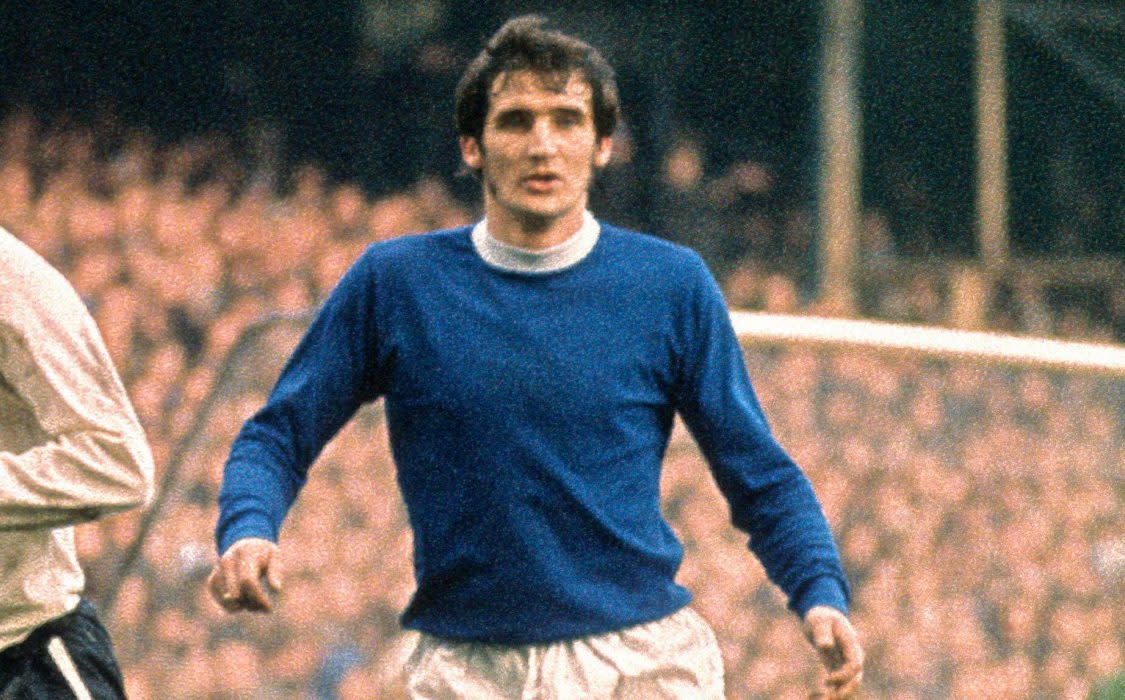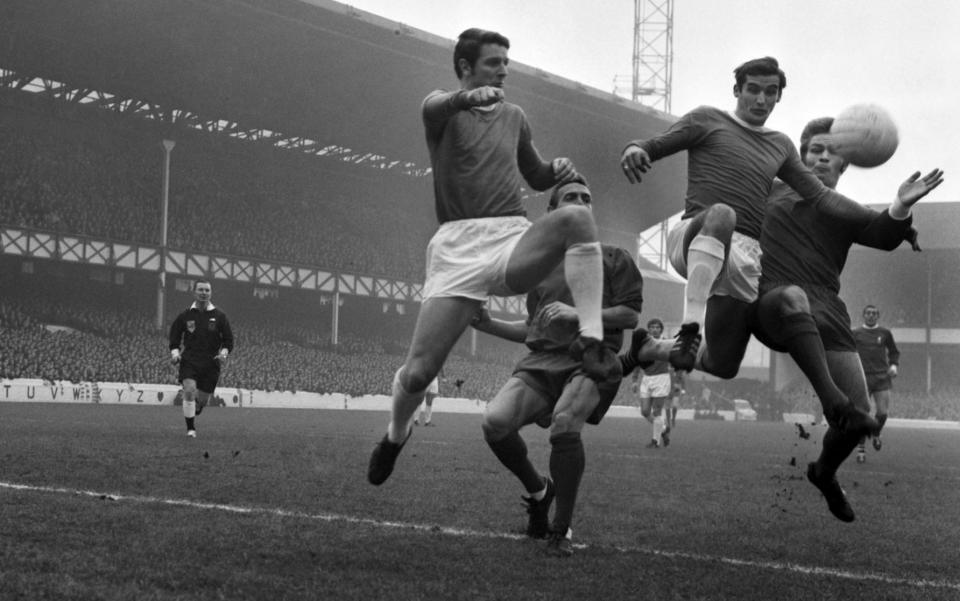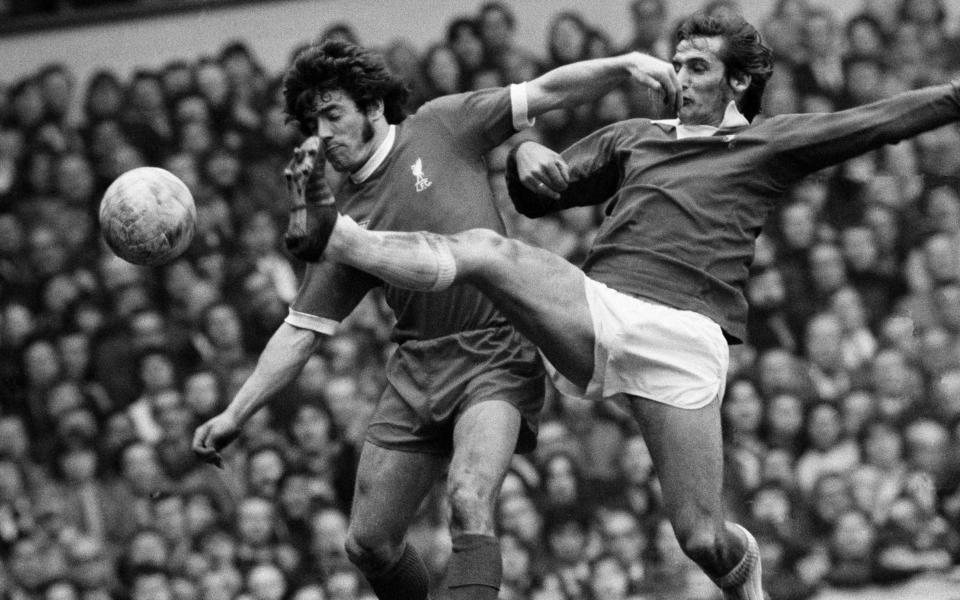John Hurst, cool-headed centre-back who won the League title with Everton – obituary

- Oops!Something went wrong.Please try again later.
- Oops!Something went wrong.Please try again later.
- Oops!Something went wrong.Please try again later.
John Hurst, who has died aged 76, was a footballer who won the League Championship with Everton in 1970; he formed a solid centre-back pairing with Brian Labone, and after his playing days was part of Joe Royle’s backroom staff at Goodison Park.
“John Hurst could be guaranteed not to turn a drama into a crisis,” wrote Ivan Ponting in Everton Player by Player. “The tall, leggy, centre-back possessed one of the coolest heads in football, and when pressure mounted on the Everton goal, he would be found at the centre of the storm, defusing the danger efficiently and unfussily before seeking a chance to set up the Blues’ next attack.
“Yet ‘Gentleman Jack’, the quietest man inside the Goodison dressing room, did his job so unobtrusively that few public plaudits came his way. Inside the game, however, there was no lack of recognition amongst his peers. He was respected as an impeccable professional who offered class and consistency in equal and ample measure.”

John Hurst was born on February 6 1947 in Blackpool. He joined Everton’s youth system, and was in the side that won the 1965 FA Youth Cup, beating Arsenal in the final 3-2 on aggregate; Hurst scored the second-leg winner from the penalty spot.
He made his first-team debut the following season, playing 19 League games and claiming a little piece of Everton history when he became the club’s first substitute, against Stoke City in August 1965, coming on for the injured Fred Pickering. “It was nearly a dream debut,” he recalled. “We had a corner right at the end and just as I was about to head the ball into the net, the referee blew his whistle for full-time. I couldn’t believe it!”
He was soon established as a regular wing-half, before moving into the heart of the defence alongside Labone, and he played in all but two of Everton’s League games in 1967-68 as they finished fifth.
They also performed well in the FA Cup that year, but on the eve of the semi-final against Leicester City Hurst came down with jaundice – though he was back for the final, a defeat in extra time to West Bromwich Albion. The Everton manager Harry Catterick, meanwhile, sent Hurst to a psychologist to toughen him up mentally and get him to make more of his attacking skills.
In 1969-70 he was one of four ever-presents (along with Joe Royle, Gordon West and Tommy Wright) and contributed five goals as Everton won the League title by a huge nine points from Leeds United (in the days when it was two points for a win). He was on the winning side at the start of the next season when Everton beat the FA Cup-winners, Chelsea, 2-1 at Stamford Bridge in the Charity Shield.
Though Everton’s momentum faltered in the first half of the 1970s, they picked up again under Harry Catterick’s replacement, Billy Bingham, and finished fourth in 1975.

But the following season Hurst made just six starts, and was given a free transfer, departing for Second Division Oldham Athletic in the summer. He had played 388 games for Everton, with 12 appearances off the bench and a tally of 34 goals, as well as winning nine England under-23 caps.
He spent five seasons at Boundary Park, playing more than 200 games and retiring in 1981. He opened a pub in Liverpool, owned a shop selling ex-catalogue goods and worked for Royal Liver Insurance.
Then in 1994, his old teammate Joe Royle took the managerial reins at Goodison Park and brought Hurst in as a youth coach. One of his charges, Danny Cadamarteri, who went on to play around 100 times for Everton, recalled: “John didn’t just coach the youngsters, he instilled values and standards into the group. He didn’t dish out praise regularly so if you got some, you knew you’d done well.”
John Hurst married Rose, whom he had met at school; they had two daughters.
John Hurst, born February 6 1947, died January 18 2024

